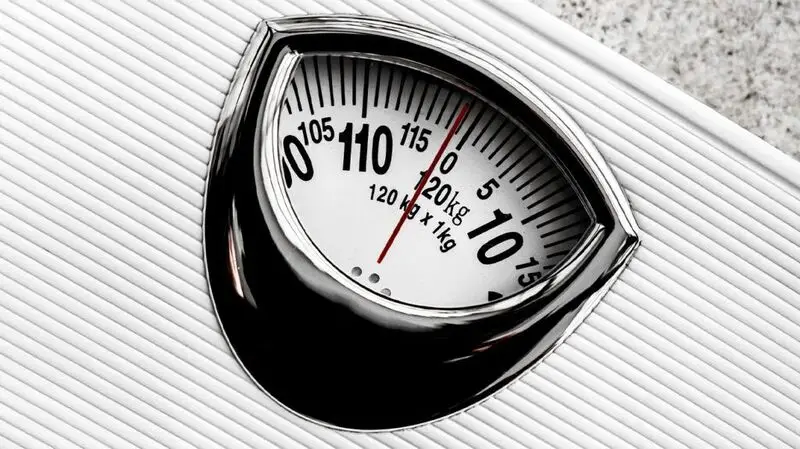
- Researchers from the International Agency for Research on Cancer recently examined the link between excess weight and breast cancer risk in postmenopausal women.
- The scientists focused specifically on women who developed cardiovascular disease to see how developing this affected breast cancer.
- The findings showed an especially increased risk of breast cancer for every 5 kilograms per square meter increase in body mass index (BMI) in women who developed cardiovascular disease.
According to the
Carrying excess weight can cause many health issues, such as type 2 diabetes and an increased risk of heart disease. Being overweight can even lead to a higher risk of
A new study led by researchers from the International Agency for Research on Cancer of the World Health Organization (WHO) in Lyon, France set out to discover whether women who are overweight or have obesity who go on to develop heart disease or type 2 diabetes have an increased breast cancer risk.
While type 2 diabetes did not increase breast cancer risk, the study revealed that women who developed cardiovascular disease (CVD) had a 31% higher risk of breast cancer.
The study appears in the American Cancer Society’s journal
While breast cancer can affect women of all ages, it affects postmenopausal women at higher rates.
After women go through menopause and the ovaries no longer produce estrogen, the hormone is produced in adipose cells (body fat), which includes cells in the breasts.
Too much estrogen can increase the chance of abnormal cell growth, which may lead to breast cancer.
To learn more about breast cancer and heart disease in postmenopausal women, the authors used data from around 170,000 participants from two European prospective cohort studies. They only included women who did not have a history of CVD, type 2 diabetes, or breast cancer.
The researchers reviewed various Health metrics, including BMI, which is not always the best measure of Health, since it does not take into account sex, age, fat location, or muscle mass.
However, as a more established measure, BMI was the focus for the authors in the new study in terms of developing CVD, type 2 diabetes, and breast cancer.
At the beginning of the data collection, the average age of the participants from both data sets was around age 60, and obesity levels in one data set was 17% and the other was 21%.
Both cohorts had a median follow-up of around 11 years. Some of the data the researchers reviewed from that time included whether the participants developed CVD, type 2 diabetes, or breast cancer.
The researchers found that having either an overweight or obese BMI level and developing CVD can increase the risk of developing breast cancer.
During the follow-up period, nearly 7,000 women developed breast cancer. The scientists learned that each 5 kilograms per square meter (kg/m2) increase in BMI was linked to a 31% increase in breast cancer risk for women with CVD.
This is significantly higher compared to the increased risk in women without CVD, which was a 13% higher risk.
Developing type 2 diabetes did not increase the risk of developing breast cancer.
The leader of the research team, Heinz Freisling, PhD, spoke with Medical News Today to explain the connection between CVD and breast cancer risk.
Freisling explained how excess body weight can lead to chronic inflammation, high insulin levels, and abnormal cholesterol, all of which can damage blood vessels and contribute to heart disease.
The researcher also discussed how adipose tissue secretes hormones, such as
“Leptin also stimulates cell division, in particular in breast tissue, and suppresses immune responses,” said Freisling. “These mechanisms are also risk factors for breast cancer, with the exception of blood lipid levels.”
Christopher Berg, MD, a noninterventional cardiologist specializing in cardio-oncology at MemorialCare Heart and Vascular Institute at Orange Coast Medical Center, spoke with MNT about the study.
“This study shows that the risk of breast cancer associated with elevated BMI is increased in women who develop cardiovascular disease,” Berg, who was not involved in the research, told us.
“These findings highlight the potential of preventing atherosclerotic cardiovascular disease not only to reduce heart-related outcomes but also as a strategy to reduce breast cancer risk,” he noted.
Berg made some preventive recommendations postmenopausal women who want to lower their breast cancer risk can take.
“The study reinforces the importance of managing cardiovascular risk factors and maintaining a healthy weight to lower breast cancer risk,” explained Berg.
He recommended the following strategies:
- engaging in regular physical activity—aiming for at least 150 minutes of moderate-intensity exercise per week
- avoiding excessive alcohol consumption
- quitting smoking
- making heart-healthy dietary choices, such as following the DASH (Dietary Approaches to Stop Hypertension) or Mediterranean diet.
Bhavana Pathak, MD, a board-certified hematologist and medical oncologist and medical director of Integrative Oncology at MemorialCare Cancer Institute, likewise not involved in the study, also shared some preventive strategies with MNT.
Pathak recommended incorporating strength training to “shift metabolism towards retaining the more metabolically active muscle tissue.”
Additionally, Pathak also made suggestions for a healthy diet that can help with cancer prevention.
“Inclusion of more whole foods, including fruits, vegetables, and grains that are low in saturated fats, is healthful for the microbiome with micronutrients and fiber to sustain both a healthy immune system for cancer prevention and maintain healthy lipid levels involved in the genesis of atherosclerosis.”
– Bhavana Pathak, MD





